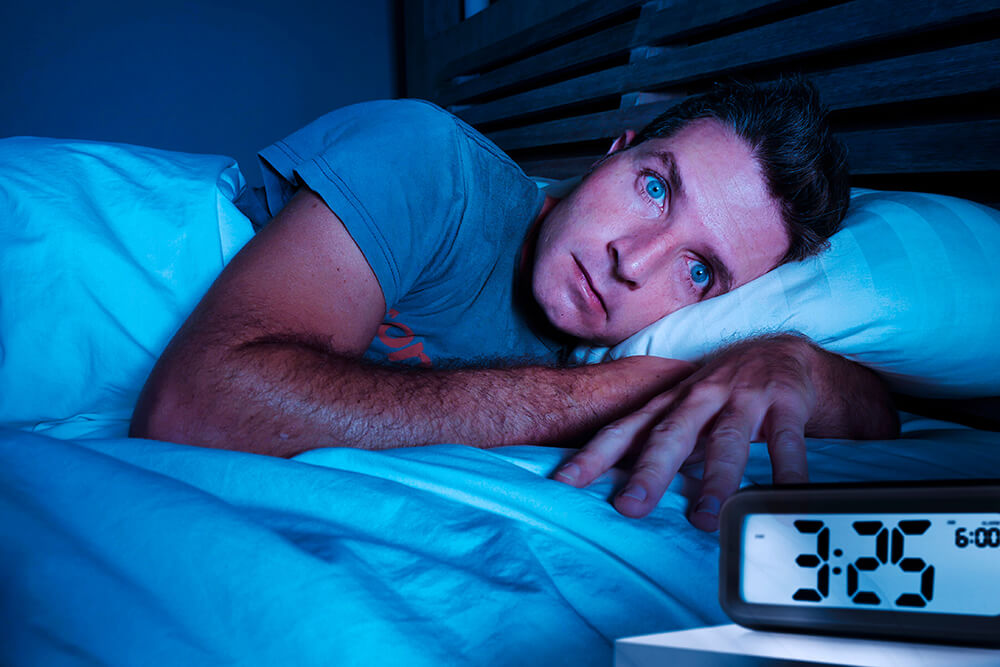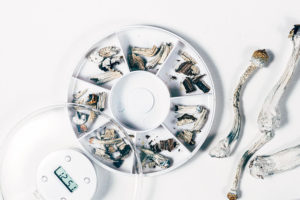Introduction:
In the world of psychedelic retreats and personal exploration, the timing of psilocybin sessions has been a topic of discussion. While many other retreats opt for nighttime sessions, we at Eleusinia Retreat firmly believe in the merits of starting our psychedelic experiences during the day. In this article, we’ll shed light on why taking psilocybin at night might not be the best idea and why our daytime approach offers a more balanced and beneficial experience.

Sleep Disruptions and Sleep Deprivation:
Serotonergic psychedelics, like psilocybin, interact with the brain’s serotonin receptors, which can have significant effects on sleep patterns. When taken in the evening or late at night, psilocybin has been known to disrupt normal sleep cycles, leading to sleep disturbances and potential sleeplessness. This can result in a long, restless night, leaving individuals feeling uncomfortable and fatigued, ultimately hindering the desired outcomes of the psychedelic experience.
The impact of sleep disruption can be particularly concerning for individuals with latent bipolar disorder. Sleep deprivation, triggered by the psychedelic experience, may exacerbate the risk of manic or hypomanic episodes in susceptible individuals. The altered neurotransmitter balance, combined with the lack of restorative sleep, can potentially exacerbate mood fluctuations and lead to emotional instability.
For these reasons, it is essential to consider the timing of psilocybin sessions to minimize the risk of such sleep-related complications. At Eleusinia Retreat we opt for daytime psychedelic experiences where participants can benefit from a more natural transition into their regular sleep schedule after the effects wear off. This approach aligns with the body’s circadian rhythm, promoting a balanced sleep-wake cycle and reducing the likelihood of experiencing sleep disturbances.
To ensure a safe and positive psychedelic journey, individuals should be mindful of their sleep patterns before, during, and after the experience. Prioritizing adequate rest and choosing the right timing for the session can significantly enhance the overall well-being and transformative potential of the psychedelic encounter. In cases where extended periods of sleeplessness and manic symptoms arise, seeking professional guidance promptly is crucial to ensuring a stable recovery and maximizing the therapeutic benefits of these profound experiences.
Supporting Neuroplasticity:
Sleep plays a pivotal role in supporting and enhancing neuroplasticity, the brain’s remarkable ability to reorganize and adapt in response to experiences and learning. During sleep, the brain undergoes a complex series of processes that consolidate memories, solidify learning, and prune unnecessary connections. It is during these restful hours that the brain strengthens newly formed neural pathways, promoting the integration of newly acquired information and skills into existing networks. Additionally, sleep enables the brain to flush out waste products, toxins, and harmful proteins, further optimizing neural function. The quantity and quality of sleep directly impact neuroplasticity, as a lack of sufficient rest can impair memory consolidation, hinder cognitive performance, and compromise the brain’s capacity to adapt to new challenges and stimuli. In essence, sleep serves as a crucial foundation for maintaining optimal brain health and cognitive flexibility, allowing individuals to embrace continuous growth and improvement throughout their lives.
Maintaining Stability:
A proper sleep schedule is not only essential for overall well-being but also plays a significant role in the process of regaining stability after a transformative psychedelic experience. The hypothalamus, often regarded as the seat of our internal circadian clock, orchestrates the complex symphony of our sleep-wake cycle. Interestingly, this brain region is also rich in 5HT2A receptors, which are the same receptors that interact with psilocybin during a psychedelic journey. As such, the timing of psychedelic sessions can influence the delicate balance of these receptors within the hypothalamus, potentially offering an opportunity to harmonize and recalibrate our circadian rhythm.
Thoughtfully planning and scheduling psychedelic sessions during the day allows participants to synchronize the experience with their natural circadian rhythms. This alignment allows the brain to integrate the psychedelic insights more seamlessly and promotes a smoother transition to restorative sleep once the effects of psilocybin have worn off. In turn, a well-regulated sleep pattern enhances the brain’s capacity to consolidate new experiences, insights, and emotions from the psychedelic journey. This constructive interplay between the psychedelic experience and sleep contributes to a more stable and grounded integration of transformative insights, providing a nurturing environment for personal growth and healing.
By being mindful of the relationship between psychedelic sessions and sleep, individuals can foster a healthier circadian rhythm beyond the immediate effects of psilocybin. With consistent practice, they may observe an enduring positive impact on their sleep-wake cycle, experiencing more restful and rejuvenating nights. This process of normalization nurtures the harmony between mind and body, promoting overall well-being and enhancing the potential for lasting positive changes stemming from the psychedelic journey. As a result, embracing a balanced approach to the timing of psychedelic sessions can contribute to a profound and sustainable transformational experience, elevating the therapeutic benefits of these remarkable substances.
Seeking Professional Help:
If you find yourself experiencing extended periods of sleeplessness after a psychedelic session coupled with symptoms of mania, it is crucial to seek medical advice promptly. Professional support can provide guidance and ensure a safe and stable recovery.
In conclusion, taking psilocybin at night can disrupt sleep cycles and lead to sleep deprivation, potentially affecting the overall experience and well-being. At Eleusinia Retreat, we advocate for daytime psychedelic sessions to support better sleep, enhance neuroplasticity, and maintain stability. By choosing the right timing for your psychedelic experience, you can optimize the benefits and create a safe, transformative journey toward self-discovery and healing.






2 Responses
Great article Jessica – Thank you!
Great to hear from you Kathy!